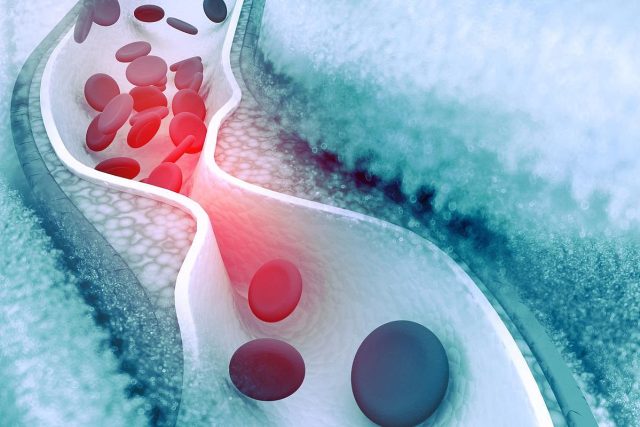Deleterious effect of lipoprotein(a) ≥180 nmol/L possibly mitigated by high-impact LDL-cholesterol-lowering therapy
By Elana Gotkine HealthDay Reporter
WEDNESDAY, May 21, 2025 (HealthDay News) — Higher lipoprotein(a) levels are associated with continuously increasing risk of recurrent atherosclerotic cardiovascular disease (ASCVD) events, regardless of sex and race/ethnicity, according to a study published online May 7 in the European Heart Journal.
Noting that higher levels of lipoprotein(a) drive increasing risk of ASCVD in otherwise healthy individuals, Diane E. MacDougall, from the Family Heart Foundation in Fernandina Beach, Florida, and colleagues examined whether this is also true for recurrent ASCVD. Among U.S. medical claims between 2012 and 2022 for 340 million individuals, 273,770 had diagnosed ASCVD and lipoprotein(a) measures.
The researchers found that 15 percent of participants experienced recurrent ASCVD during a median follow-up of 5.4 years. There was an association for higher lipoprotein(a) levels with continuously increasing risk of recurrent ASCVD. For individual ASCVD components and in sex, race/ethnicity, baseline ASCVD, and diabetes subgroups, results were similar. The deleterious effect of lipoprotein(a) ≥180 nmol/L was possibly mitigated by high-impact low-density lipoprotein cholesterol (LDL)–lowering therapy, which was most pronounced for those on PCSK9 inhibitors (PCSK9i).
“Lipoprotein(a)-associated risk was similar regardless of baseline ASCVD and diabetes and may have been partially mitigated by the use of high-impact LDL cholesterol–lowering therapy, most pronounced in the case of PCSK9i use,” the authors write.
Several authors disclosed ties to the biopharmaceutical industry.
Copyright © 2025 HealthDay. All rights reserved.



















